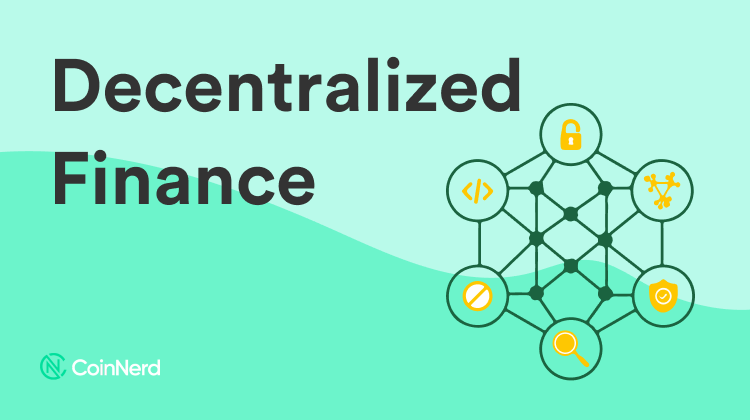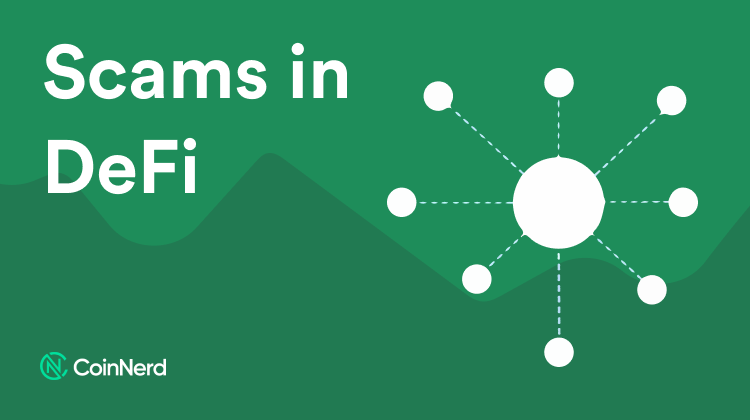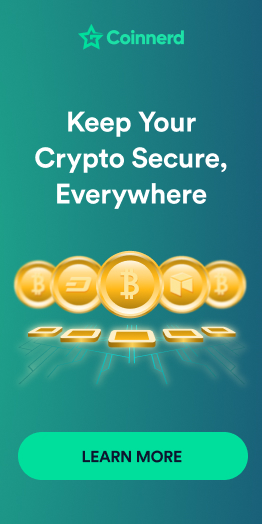Defi Scams 101: How to Avoid the Most Common Cryptocurrency Scams
The cryptocurrency industry has been hit with many fraud cases recently. Many crypto enthusiasts have been complaining of how they have been scammed millions or billions of dollars worth of cryptocurrencies. DeFi, too, has been hit with hacking cases lately and other DeFi scams, representing a big risk in terms of finance.
DeFi’s innovations have brought new downsides, the industry being attacked by DeFi and blockchain scams and wallet threat cases. Being a pivotal year in the history of the cryptocurrency industry, 2021 alone has seen the highs and lows as experienced by crypto and DeFi. About $12 billion in crypto assets were stolen from user wallets and holdings in this particular year alone.
Why are DeFi Scams Growing?
Many experts attribute part of this vast global theft to the poor programmed smart contracts and a few weaknesses in the platforms that have experienced this. However, most of the theft cases were due to crypto fraudsters who have taken advantage of the unsuspecting users new to the space.
This has been the concern of many who still are afraid of dipping their feet into the choppy waters of crypto investing.
Luckily, there are in fact ways you can explore as a trader to avoid these DeFi scams and rip-offs in crypto. But there will always be risks. As the crypto industry hits the mainstream, then the industry will see these scams and security breaches increase as hackers become more aggressive.
While some DeFi scams are easy to spot, most are not obvious. Users lose lots of cryptos because the protection for fiat currency does not exist for cryptocurrency.
DeFi Vs Traditional Finance – How Do They Compare
No. Traditional finance like banks and online platforms have only one central point of contact: a server. If the server breaks down, the transactions are halted for even a whole day. So, they have to keep maintaining their servers to continue in business. Once the hackers come in, there is very little to salvage from the situation and, therefore, not a secure way to store money.
However, with decentralized finance, users can be incentivized to hold parts of the network. Ideally, the more nodes connected in the Defi network, the more secure the network becomes. So, there is no central point of attack like in the traditional finance servers.

A hacker would need to take control of about 50% of the nodes connected to the network – and that is quite impossible. Because the network is distributed globally through users’(nodes) devices, anyone can access and use the DeFi network of their choice, send funds, and interact with the network in many ways without any barriers.
As for the upgrades, the nodes are entirely responsible and in control of any changes over a DeFi network. This is a significant improvement on traditional finance because it means your money is secure at all times and in control by only you.
So, one might ask then, how are there too many cases of scams and frauds taking place with all the power that Defi is providing. The power in DeFi has its own set of problems. But one thing that can make a huge difference is for users to be well aware of these scams. You must also take personal responsibility for the safety and security of your assets and learn some of the key security measures to take.
Identifying Common Cryptocurrency Scams
Some crypto scams which are unique to the digital world of crypto are not as complicated as you would imagine. Most of them are just tricks and twists that target users who want to grow their money fast. The scams are especially very common to the new users looking to invest in crypto. Here are some simple tips that you can use to identify these scams in the future.
Give Away Scams
This type of scamming is attached to celebrities’ and public figures’ pictures or information. Sometimes a star may have talked about crypto on a given occasion somewhere. Many times it’s on their social media accounts. Scammers organize giveaways related to that information and use the celebrities’ names to get money from people.
Sometimes they will respond to the giveaways using fake accounts to convince you that it is a legit thing going on here. Often, the posts will always include screenshots of the giveaways and link them to a website where people enter, and you will be required to verify your crypto wallet address by sending them a payment. Just ignore those messages. There is no one out there giving away crypto and if they did, there will be a very clear set of terms and conditions for you to participate.
Phishing Scams
Phishing scams are not new. These types of scams have traditionally targeted emails or banking login details for unsuspecting clients. In crypto, they try to get private keys to your crypto wallet. In many instances, the scammers running the con will pose as technical support guys and try to get your information in a very polite way.
These cons are often trained on how to talk to you to convince you that there is a problem with your wallet. They will even go as far as saying they want to manage your crypto wallet and ask for your login credential. They might also ask you to send your crypto to another wallet address in the name of managing it for you as they try to fix yours.
Once you give in, they disappear. Well, to avoid this, always ensure that you counter-check the company’s legitimacy before you hand over any details about your assets. Furthermore, no matter how reputable a company is, never give anyone sensitive information on your finances.
Investment Scams
These types of scams occur when “once-in-a-lifetime” investment opportunities are presented to the users intending to invest in crypto. It is more likely that many run towards the opportunities. After all, everyone wants to make some quick bucks and become rich almost overnight. The scammers know that and that’s why they package the con job well.

In this type of scam, scammers will most of the time claim that their company is reputable and is the next big thing in the crypto industry. They will say they can help you hit millions of dollars once you invest with them at the early stage. This is often referred to as rug pull in the crypto market.
There are times when investment managers will be offering to help grow your assets and have all kinds of enticing words. They set up an account for you that you don’t have access to because they only have the details and the password. When you see this kind of a thing, mark it as a scam.
Pyramid Schemes in Crypto
Other investment scams in crypto operate like pyramid schemes. In this, the scammer will try to convince you to make a payment to them in crypto to recruit other people into their program. The scammer will also claim that you will earn from that money when you bring more people into the program. According to the scammer, the more people you bring in, the more you make.
Sometimes the scammers and their company will launch new cryptos or tokens, claiming they solve an unmet need in the market. They will even go ahead to pitch you their product, asking you to buy their token as an investment and vanish once you make the payment.
One thing to note is that when investing, make sure you do your due diligence on the company you intend to invest in. Check out their website and be on the lookout for grammatical errors and typos that might lead you on. Also, check the reviews on the company from public sources. It’s a better way to begin.
Extortion Scams
In this type of scam, scammers will contact you, claiming that they have incriminating information about you and threaten to release it if you refuse to send the payment in crypto. However, most of the time, they will only have nothing. However, in some cases, they may have such info. When you face such scams, report them to Google and other law enforcement authorities.
What to Do to Avoid the Scams
The DeFi network, as earlier mentioned, is a better version of traditional finance, and therefore, there are very minimal cases of hacking that have taken place in the cryptocurrency industry. Most of the scams that we see are tricks that scammers use to get you to send money or give them access to your cryptocurrency.

Should you come across such scam information, you can apply a few things to avoid falling for the tricks. Here are some tips:
Do Thorough Research
DeFi or not, make sure you research well and take time to understand what kind of investment, project, or crypto you are about to get into. It’s worth noting that full proof is always suitable when you start investing in given crypto. Look at its whitepaper and the listed developers and check whether they are also legit.
Check Out the Smart Contract
The smart contract is a collection of code-carrying instructions on the blockchain. These contracts are most common for most crypto-based projects in DeFi. They can be a bit technical, but it’s worth checking what smart contract is behind that particular project. The scams often have an issue with the developer’s code, followed by potential weaknesses within the project.
A perfect example is Poly Network (a DeFi platform) which connects several blockchains. The chain was hacked into, and experts said that there was an exploitation of an issue with the coding of the smart contracts.
So, based on that, it is important to look at investment projects that are secure and well audited. Auditing aims at uncovering if there are issues in a project’s development. When analyzing a project, red flags include applications not sharing a code or ignoring forums and social feedback concerns. Even when a project has been audited, it still has the possibility of slipping.
Ensure You Understand the Reputation Risk
By reputation risk, we mean the threat that a project is not in good standing and remains a potential host of founders with ill intentions. The best projects are led by anonymous founders who protect their privacy and still present transparency.
Projects like pump and dump and rug pull are pure schemes that have been abandoned by developers leaving investors’ funds to fall prey. An example is a token named after squid Game that crashed to almost zero after its founders cashed out.
You also need to note that many social media celebrities and public figures are paid to pump tokens online. However, it does not mean that you should go for it. The celebrity’s reputation does not guarantee that the project or token is good for investment.
Secure Your Wallet
Keeping your wallet safe should be the biggest priority. When opening a wallet, a set of private keys is generated. You need to keep this as personal as possible. Private keys are a set of words, letters, or numbers similar to a password. The many scam cases out there have emerged because the owner of wallets gave out their private keys only to find the crypto withdrawn.
There are several ways you can secure your investment and private keys. One of the ways is self-custody, where you are in complete control of your wallet and private keys. Keeping your crypto investment in cold wallets like Ledger Nano S and others is also a great idea. These have fewer risks because your wallet is not connected online and therefore, no need to worry about hacking and scams.
Be aware of scammers in the crypto space, including hackers who call your phone to ask for your phone details to pass the two-factor authentication on your account. Under no circumstance should you release information on crypto investments wallets or crypto accounts.
Some hackers use Google ads that appear when users search for popular crypto wallets where they can store their crypto after purchase. Remain very skeptical when receiving messages regarding your crypto wallet and be aware of fake accounts. If it’s too good to be true, it is not valid.
* We hope this information will help you in your investment process, but this is not investment advice. Every investment carries risk, especially in this industry, so DYOR before making a decision.






